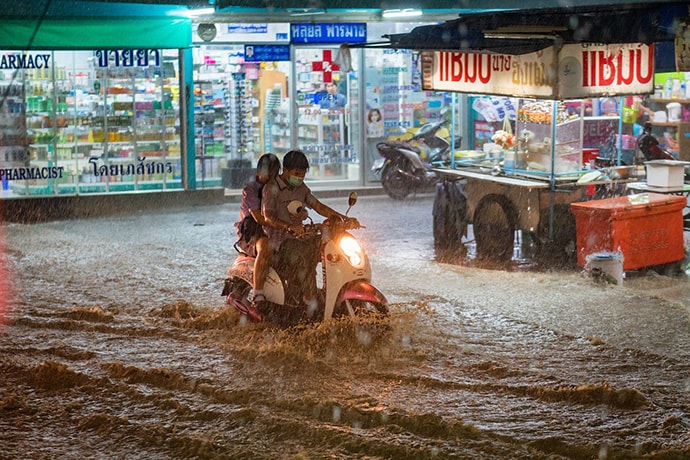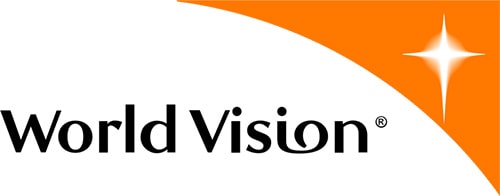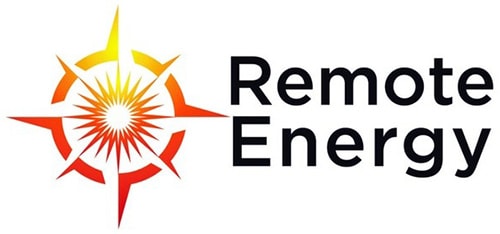How We Weather Storms
Impactful Approaches to Building Disaster Resilience in Climate Change
By Aneesh Chatterjee

Flooding in Thailand. Photo: Pixabay/Arek Socha.
On July 8th, 2021, the first Hydromet Gap Report was published to illustrate how far society stands from fostering a stable and beneficial global environment. The hydromet umbrella – encompassing hydrological, climate-based, weather, and other natural systems-related services – was pitched in the report as the strongest framework upon which to base mandates for effective climate action. One standout service underlined in the report is the implementation of effective weather warning systems. Tools are proposed by the Alliance for Hydromet Development (ADH) – founded in 2019 at COP25 – to equip at-risk regions with effective capacity upgrades to their climate response systems, including diagnostics tools to evaluate a country’s climate response capacities, funding channels to fuel innovation, regular reports to track progress. Effective weather response systems are expected to drastically reduce widespread destruction and loss of life in developing nations caused by the rising frequency and severity of natural disasters, brought on by rampant climate change. As such, the ADH is an excellent embodiment of SDG 13 – showcasing what effective climate action entails.
Palpable Necessity
The race to affordable access to clean energy sources – the core of SDG 7 – is another of many examples illustrating how climate action manifests. The steps necessary to strengthen responsive systems that can mitigate the impact of natural disasters are more necessary today than ever before. A Vision of Humanity article points out that, according to a study by the Institute for Economics and Peace, the frequency of natural disasters had grown from 39 in 1900 to 396 in 2019. In 2005, flooding-related incidents alone numbered at 442, with 90,000 casualties and over 160 million survivors in need of help across the globe. With droughts, storms, and floods bringing the most destructive consequences of climate change, the cost of recuperation has risen from an average of $49 million in the 1970s to a daily economic pitfall of $383 million across the world in the 2010s. To both reduce the cost of resilience and prevent further loss of life, effective climate response systems are critical to a sustainable future.
The following GlobalWA members exemplify standout climate action efforts, illustrating how current strategies to strengthen resilience and detect disasters are being implemented.
Pioneering Resilience through High-Impact Partnerships

Partnerships have been a cornerstone for many climate action initiatives taken up by institutions. A 2020 Climate Commitment publication by Dalberg Global Development Advisors encompassed a host of approaches to work toward resilience against natural disasters as well as reduce the exacerbation of climate change. Some of these partnerships have founded carbon and plastic footprint reduction programs through partnerships with Ecometrica and Climate Impact Partners, with successful initiatives in Rwanda, Mexico, India, Kenya, and Columbia; plastic collection and recycling through a partnership with the rePurpose Global program (successfully implemented in Kenya through a recycling facility operated by TakaTaka Solutions), and efforts to study the full extent of pollution in the Mediterranean Sea in partnership with the World Wildlife Fund, to name a few. Dalberg has also partnered with BeZero Carbon in their mission to manifest operational transparency and yield reliable data from organizations participating in the carbon control effort. These partnerships exemplify Dalberg’s commitment to the prevention of further climate destabilization and the strengthening of responsive strategies: through a ‘climate lens’ method of operations, Dalberg’s projects prioritize environmental impact in every mandate, even if it means turning down potential projects that do not comply with footprint targets.

Partnerships as concise as two active parties are also capable of making significant changes, as is evident in World Vision’s partnership with the world’s largest manufacturer of water pumps, Grundfos. Together, these organizations have implemented the provision of clean water to nearly 2 million people across sub-Saharan Africa through a five-year program launched in 2015. Even at the precipice of the pandemic, this initiative has mitigated the need to walk extraneous distances for drinkable water, instead bringing clean water to localities through solar powered, environmentally friendly Grundfos pumps. This project is a clear indicator that a joint initiative with as many as two parties can make significant progress in building climate change resilience.

Amazon’s 2019 Climate Pledge initiative, co-founded with Global Optimism, shows one of the most robust and ambitious attempts in combating climate change: to meet the Paris Agreement’s global reduction targets – net zero carbon emissions – by 2040, ten years earlier than the original milestone. With 322 signatories, including Microsoft, Verizon, Unilever, and Mercedes-Benz, the Climate Pledge aims to achieve this through rigorous reporting of carbon emissions, changing business strategies to incorporate sustainable, innovative tactics in favor of traditional practices, focusing on renewable assets, and eliminating current emission rates with tangible, measurable outcomes. The scale of the Climate Pledge is evident in the number of high-profile organizations willing to hold themselves accountable as signatories, and wholly represents the value of partnerships in taking enforceable climate action.
Systemic Innovation, Broad and Focused

A unique, systemic approach to climate action is the Future Rising Fellowship program launched by Girl Rising. The program acknowledges women as disproportionately affected victims of climate crises, and empowers young girls through education programs, professional development expertise, and practical resources to establish climate-friendly, sustainable enterprises at grassroots levels. The Fellowship establishes tangible solutions to specific issues, such as the core focus on improving food and water security in specific localities for the 2022 program. Prior program focuses have included mangrove conservation in Costa Rica, sustainable fishing in the Philippines, air pollution reduction in Mongolia, and low-impact, sustainable agriculture in Uganda and Kenya. Using education as a tool to address climate resilience is a broad-spectrum, systemic approach that simultaneously allows Fellows to address specific climate issues, making this program one of the most versatile ways to drive climate action forward.

Heifer International’s Power, Water, Internet (PWI) Global initiative is an outstanding example of broad-spectrum systemic changes brought on across sectors. With active programs in over 20 countries, Heifer International aims to incorporate grassroots-level sustainable agricultural training, innovative technologies, and low-cost, high-yield farming tactics; on a larger scale, they aim to upgrade vital systems (such as water treatment methods); beyond that, they target broader crises by introducing renewable energy sources for locals, reduced costs of implementation, and greater access to funding resources for farmers.

Another multidisciplinary systems-based approach is seen in the environmental conservation efforts by The Hunger Project (THP). Through specialized programs across target regions, THP has established practical farming and sustainable irrigation tactics, including drip irrigation, composting, and intercropping, enabling local farmers to farm sustainably with higher crop yields. Beyond hands-on practices, worldwide training programs by THP emboldens citizens with the knowledge of sustainability practices, the ability to access financing resources for their endeavors, leadership training, and the encouragement of advocacy so they may demand sustainable policy approaches from their governments. Across countries, THP has also established tree nurseries to counteract deforestation, replanting trees to improve soil erosion, create effective carbon sinks, and enrich local villages with entrepreneurial opportunities through income from fruit yields. A multi-sector mandate to addressing climate action, from training the individual to creating systems of economic and social engagement, is the hallmark of an effective systemic approach.

While aforementioned members engage in multi-sector initiatives, Remote Energy’s unique proposal for climate action takes a specialized approach to training communities in photovoltaics, heralding disruptive solar technologies in crisis-prone regions. Acknowledging the disparities among races, genders, and economic standings as a factor in resource access, Remote Energy proposes specialized training streams for women, instructional resources for Native Americans, mentorship programs, technical skills instruction, and online classes. Working with local institutions in target regions, Remote Energy also implements training facilities to encourage hands-on lessons in handling photovoltaic technology and understanding the nuances of solar energy. With a streamlined focus on a specific area in sustainability, Remote Energy brings high-impact changes in climate resilience through rapid shifts to renewable energy, propagated from the ground up by connecting people with hands-on training and resources.
Irrefutably Interdisciplinary
Given how versatile and expansive the host of discussed initiatives are, the evident common thread among them is the crucial need for joint, partnered, interdisciplinary action across multiple sectors, with specialized and decentralized focus allotted to each region of priority. Climate action cannot be undertaken without unconditional cooperation between parties, and the members highlighted exemplify the value of such collaborative, disruptive, and focused efforts to build resilience against climate change.
In addition to the above member organizations, the following members are working towards the sustainable development goals of Climate Action (SDG 13) and Affordable and Clean Energy (SDG 7) through their programs.
Construction for Change is a nonprofit construction management organization. Our unique model of service provides the highest possible value to our Project Partners. We leverage the expertise of world class design firms and construction professionals who make our work possible. This model allows us to streamline costs without compromising quality.
We work for and with the communities we serve. We recruit local labor and offer these talented workers the opportunity to expand their skills in the construction trades.
We build sustainably, leverage existing supply chains and use energy-efficient technologies like solar power.
We value equity and inclusion and prioritize women and Black, Indigenous and People of Color (BIPOC) as Project Managers on our job sites.
Dalberg is a leading social impact advisory group with a mission to build a more inclusive and sustainable world. Our climate practice supports philanthropic, corporate, nonprofit and government clients on a range of issues including clean energy investment, regenerative agriculture, natural capital solutions, and climate resilience in the built environment.
For example, Dalberg is currently supporting Colombia’s Energy for Peace initiative by structuring creative financing solutions that crowd in private capital to build and operate sustainable solar mini-grids in conflict-affected parts of the country. On behalf of the World Economic Forum, we designed and now serve as secretariat for the African Circular Economy Alliance, which aims to accelerate circular economy investments on the continent alongside economic development imperatives. We have also partnered with World Wildlife Fund (WWF) to produce a number of policy advocacy reports including The True Cost of Plastic, on the need for a global treaty on marine plastic pollution; Halve Humanity’s Footprint on Nature to Safeguard Our Future, on the economic drivers of biodiversity loss; and Working with Nature to Protect People, on nature-based solutions for disaster risk reduction. Additionally, we support leading global companies on supply chain sustainability solutions and investments in carbon-neutral operations.
In its own global operations, Dalberg is a carbon- and plastic-neutral company that is committed to reaching net zero by 2025. Dalberg is a signatory to the UN Global Compact Business Ambition for 1.5 degrees, pledging to adhere to the Paris Climate Agreement by ensuring we do not contribute to the warming of the planet beyond 1.5 degrees.
Earthworm Foundation (EF) is an impact-driven non-profit that partners with businesses, civil society, communities and governments to improve the way commodities are produced, such as cocoa, packaging, palm oil, rubber and more. Experts in supply chains, agriculture, social issues, and environmental protection work across five continents to improve conditions for people, forests and soils impacted by supply chains. EF focuses on implementing responsible sourcing commitments in supply chains and innovating practical solutions to social and environmental challenges across sourcing landscapes. Since 2015, EF field teams have engaged 21,456 farmers, indirectly impacting 60,000 farmers and family members, to help them improve their resilience against climate and market fluctuations. EF also works with 244 partner companies and organizations to protect more than 53,000 hectares of key habitats and forests in places such as Brazil, Dominican Republic, Ecuador, France, Ghana, India, Indonesia, Ivory Coast, Malaysia, Peru, Solomon Islands, Thailand, and Vietnam. In 2016, EF and Airbus co-developed Starling, a satellite monitoring platform linking space technology with the supply chain expertise necessary to drive social and environmental change. Starling provides robust monitoring of forest loss, a key driver of climate change. It currently monitors more than 22 countries and 113 provinces, or over 3.6 million sq mi, and incorporates 20 years of historical data and trends. The platform has generated more than two million alerts and 180,000 images.
We’ve identified the seven most sought-after essential resources missing in struggling and impoverished Eastern and Southern African communities impacted by climate change. They are: Large Scale Water Security; Clean Water; Improved Sanitation; Water Conserving Gardening; Hygiene Products; Safer Cooking; and Better Building Materials.
In response to these challenges, we offer a 25,000-liter built-on-site Rainwater Catchment Tank; Renewable and Affordable Water Filtration systems; Composting Latrines; Permagardens; Liquid Soap; subsidized Rocket Stoves and the Interlocking Stabilized Soil Block (ISSB), a revolutionary product that can be used in place of a fired brick or concrete block (in fact, our Rainwater Catchment Tank and Composting Latrine are built with ISSB bricks).
All these “climate change mitigating” technologies are taught by our local-staff and produced by members of the partner community. This partnership works because no one is left behind, everyone has a role, and everyone has the opportunity to work and be paid.
The program is rigorous, lasts a minimum of five years and is only initiated after a months-long process of Community Engagement where, as a group, we hold a series of open meetings with the villages. We reach consensus on what we can do, how we’ll do it and when we’ll do it. Together, all this works because we work together.
This year we are on target to complete 1,000,000 liters of water storage in rural communities in Africa, next year we would like to build 2,000,000 liters of storage. Thanks for your support.
FSC Investments and Partnerships
FSC Investments & Partnerships (FSC I&P) is working alongside FSC International and its network partners to safeguard healthy forests, a critical nature-based solution to climate change. FSC aims to bring forests to the center of climate action by improving forest management, restoring ecosystems, and conserving critical areas.
FSC is currently working to create and deliver scalable, effective, and credible climate solutions to help companies and forest managers understand and offset their climate impact and achieve their net zero emissions targets. This includes expanding its existing tool to incentivize restoration and conservation (The Ecosystem Services Procedure) and developing The Restoration Toolbox, an innovative and comprehensive set of tools for implementing, monitoring, and verifying forest restoration work.
FSC I&P is also building an extensive network of partners that will collaborate on the co-creation of solutions for climate change mitigation and adaptation, forest landscape restoration, and climate finance. As the world’s most trusted system for the certification of sustainable forest management, FSC is uniquely positioned to bring together varied stakeholders for collaborative solutions. FSC is using the power of incentives to keep forests standing, protect valuable ecosystem services, and restore degraded landscapes—all critical in combating climate change.
Overfishing is a distinctly human issue. Our oceans are in crisis at a time when 37 percent of the global population lives in coastal communities.
Future of Fish develops platforms and solutions that reduce complexity and enable stakeholders to engage. We look at ocean challenges, see the system underlying them and build collaborations to effectively apply resources for fisheries transformation. We bring a wide range of stakeholders to the table to facilitate connections, align strategies and match resources to projects. Given the variety of global and local stakeholders, creative collaboration presents a significant opportunity to share the risks inherent in change creation. Learn more.
Gambia Health Education Liaison Project (Gambia HELP)
Gambia Health Education Liaison Project, also known as GambiaHELP, exists to enable communities in Gambia to protect, conserve, and improve their own health, the health of their community, and their natural environment.
Landesa’s efforts to strengthen land rights hold promise for climate change adaptation and mitigation, environmental conservation, and community wellbeing. When rural and Indigenous communities are equipped with secure land rights that are gender-equal and socially inclusive, they are better able to make investments – in sustainable farming techniques like terracing, improved irrigation, and agroforestry – that conserve soil and water and build resilience to climate change. Beyond a role in climate adaptation, there is evidence that secure land rights can help advance efforts on climate mitigation, particularly through preservation of forests and land restoration practices. We are uniquely placed to catalyze gender equity within the climate justice movement, and we advocate with women farmers and support governments to apply a gender equity and social inclusion lens to land administration. Read more.
Oxfam’s mission is to fight inequality to end poverty and injustice. That’s why Oxfam advocates for climate action to protect the rights and livelihoods of people most affected by the climate crisis. We fight for government action to help communities cope with climate impacts and compensate them for their losses. We call on governments to shift public dollars from fossil fuel subsidies and to mandate and fund renewable energy through a just transition that protects the livelihoods and rights of workers and communities. We pressure wealthy corporations to lower pollution across their global operations.
We also champion people on the front lines of a changing climate who are creating their own solutions to the crisis. In places where fewer crops survive every planting season and ecosystems are at risk, we work with farmers and fishing communities to restore degraded land and habitats as well as expand opportunity through alternative agricultural practices. We support Indigenous Peoples and women in communities under threat from deforestation for industrial food production and from fossil fuel extraction that pollutes the land and water they rely on. We collaborate with partners in the US and globally to ensure that economic, racial, and gender justice are at the heart of climate action.
Remote Energy – their work to train on solar installation is climate action: Remote Energy
The impact of Path From Poverty’s work is seen in solutions to tangible problems like access to clean water and sustainable energy for entire families, and increasing the earning capacity of women striving to lift themselves and their families out of poverty. But the impact doesn’t stop there. In the process leaders are created, entrepreneurs are born and groups of women are becoming powerful agents for change in their communities. For example, read about Path From Poverty Solar Power program.
Guided by our mission and values, the Aquarium is committed to developing a strong foundation for long-lasting and mutually beneficial partnerships with Coast Salish and Urban Native peoples as well as other Indigenous communities so we can conserve our one world ocean.
We strive to bring families and the community together in awe and understanding of the ocean and its importance to life on Earth.
Beautiful, majestic and teeming with a rich diversity of life, our precious Puget Sound is nevertheless in trouble. Our goal is for every visitor to the Aquarium to come away with new knowledge about the life dwelling within the Sound, as well as what can be done to help preserve it. Learn more.
The Snow Leopard Trust aims to protect this endangered cat through community-based conservation projects that are based on an improved scientific understanding of snow leopard behavior, needs, habitats and threats. Learn more.
- Previous: Unconditional Resilience
- Next: Invisible Assets